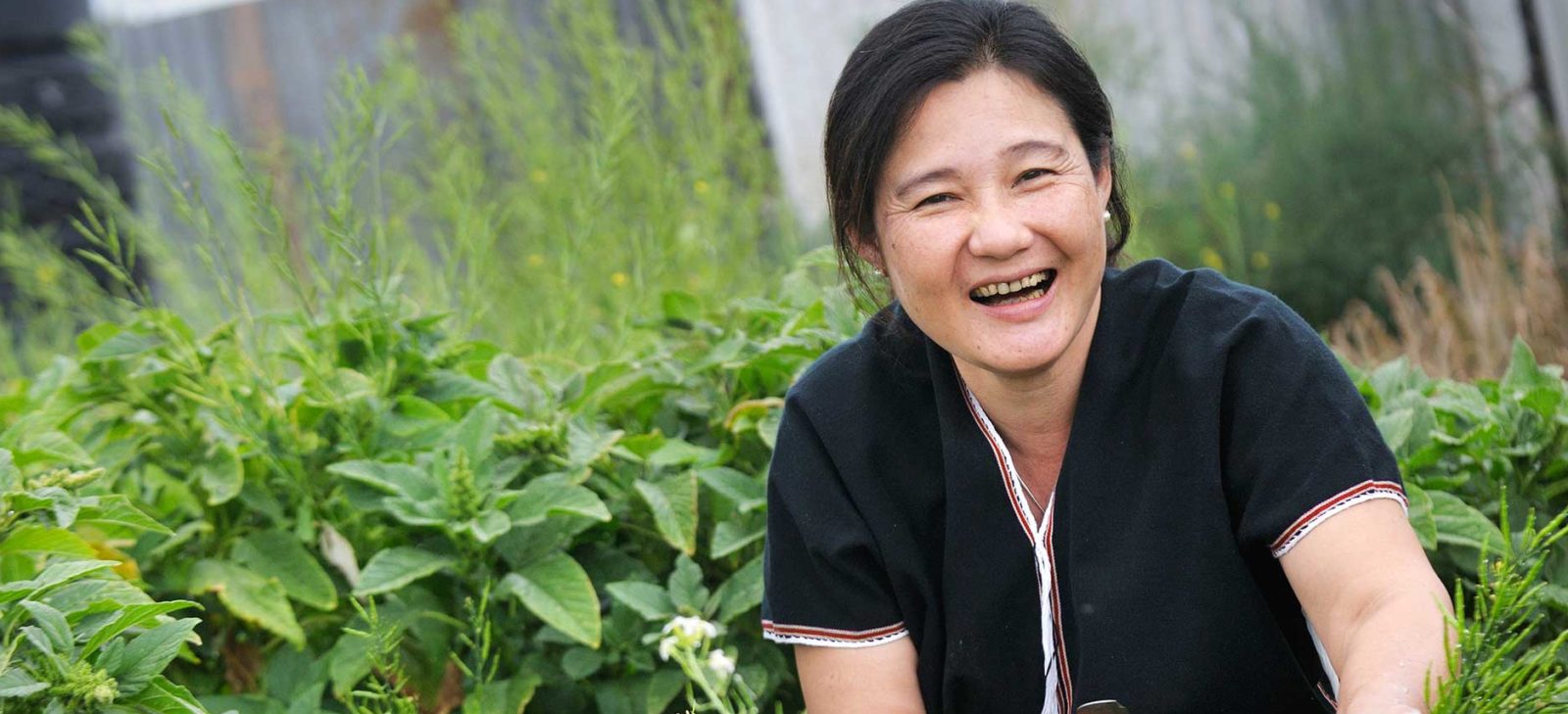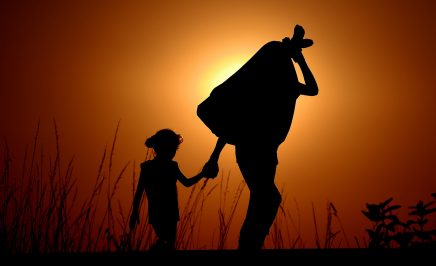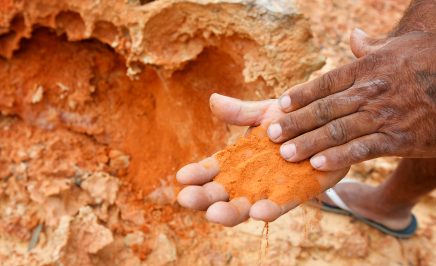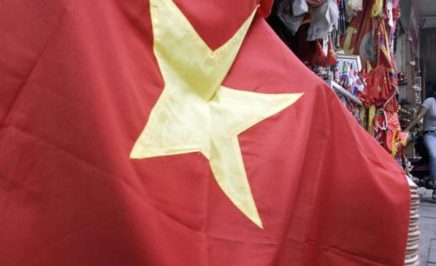Ciarán McCormack is an Amnesty Blogging competition finalist. He writes, blogs, tweets and posts on social justice and sustainability. He is also Social Media Manager for Right Now Inc.
In the remote township of Nhill in western Victoria, Karen-Burmese refugees now make up 10 per cent per cent of the town’s population and 18 per cent of the workforce – boosting the town’s economy and receiving a warm welcome from the local residents.
The Karen people in Myanmar (Burma) make up seven per cent of its population and, after decades of insurgency fighting as the main ethnic minority against the ruling military junta, many now live in refugee camps scattered along the Thai-Burmese border.
Those who were resettled in Australia began to trickle into Nhill back in 2010, when five Karen workers and their families left Melbourne to work for the large Australian poultry company Luv-a-Duck. With Australia having one of the most urbanised populations in the world, finding workers is a perennial problem for companies based in the bush.
“Since the Karen settled here eight families, including me, have bought houses”
Kaw Doh
Located 400km north-west of Melbourne, Nhill’s isolation means that it struggles to retain workers (perhaps that’s why a moon crater came to be named after the town?). It would have been understandable if the early cohort of Karen workers had decided to return to the more familiar surrounds of Melbourne’s western suburbs. However they decided to stay and repay the warm welcome they had received in Nhill.
“It was a good experience, coming to live here [in Nhill]” says Kaw Doh, one of the first residents to settle in Nhill. “Melbourne was very expensive and here we had work. Since the Karen settled here eight families, including me, have bought houses.
“I miss my home. I miss the jungle and the rivers. But life here is good, I like living in Nhill and it’s a good place for my family.”
Business is booming
Six years on and 84 new jobs have been created in Nhill. 44 Karen people are employed directly by Luv-a-duck, 20 employed by grower farms and another 20 working for unrelated businesses.
One of these businesses, Halfway Motors, has reported an uptake in business after employing 27-year old Hal Loo as an apprentice mechanic.
“The Karen are bringing their cars in for services because Hal works here,” said business owner Kim Moyle. Hal Loo’s hard work was acknowledged recently when he received a special judges’ commendation in the Young Apprentice of the Year category of the Wimmera Development Association’s annual business awards.
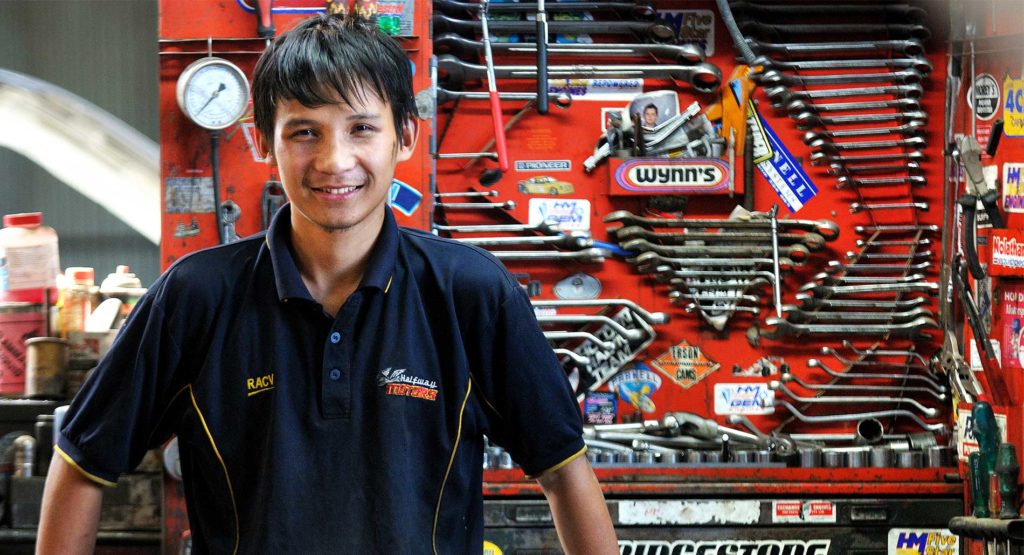
“Nhill is a good place for us Karen,” says Hal Loo. “Coming here gave me the opportunity to see my dream of working with cars and machines come true.”
Deloitte Access Economics and AMES have produced a report, Small Towns Big Returns, which calculated an economic benefit so far of $41.5 million to Nhill and the regional economy of Hindmarsh Shire.
The local IGA supermarket also reports increased weekly takings of $5000 a week following the increase in the population. This is a major boost for an outer regional area, which, like many other remote parts of Australia, has much higher levels of socio-economic disadvantage than larger regional towns.
“Coming here gave me the opportunity to see my dream of working with cars and machines come true”
Hal Loo
These statistics reflect an emerging narrative about the economic and social contributions of refugees. These have been key justifications by the German Chancellor, Angela Merkel, for welcoming her country’s intake of 800,000 refugees. Morals aside, she sees a clear economic imperative in introducing an exuberant, young workforce to the economy.
That view was echoed in Sydney recently by economist Philippe Legrain, a former advisor to the President of the European Commission, whose research concludes that there is a 100 per cent return on investment within five years for every dollar invested in settling refugees.
“You put the economic analysis side-by-side with the tremendous social impact and then you’ve got an outstanding example for all small rural communities in Australia,” said Hindmarsh chief executive Tony Doyle.
“There wouldn’t be many small rural towns around Australia like Nhill that aren’t suffering population loss and here’s a great example of how that can be addressed.”
As the global refugee situation worsens, with millions seeking refuge from war and persecution – as the Nhill success story proves – sometimes the solutions to the world’s problems can come from the unlikeliest of places.
People power works – how you can help
Amnesty advocates for those who urgently need safety and push governments to do their bit and put people first. We need to continue to be relentless in our fight for the fair and just treatment of refugees looking to Australia for help.
A more expansive humanitarian intake would make it possible for more families who have been split up by conflict and persecution to reunite.
Help us defend refugee rights:
- Donate today to help Amnesty keep up the pressure on the government and raise public awareness by funding our campaigning, research and casework
- Sign the petition calling on the government to raise Australia’s Refugee and Humanitarian intake
Amnesty International is a global movement of 10 million people standing up for justice, freedom and equality. Together, our voices challenge injustice and are powerful enough to change the world. Learn more about our Refugee Rights campaign.
